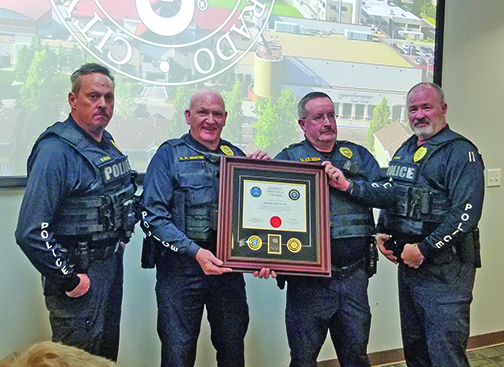
by Laura Lieff | Jan 21, 2022 | Glendale City News
by Laura Lieff
The Glendale Police Department started 2022 off with high honors. At the January 4 Glendale City Council meeting, officers from multiple divisions — including dispatchers, patrol officers, detectives, victims advocates, evidence technicians, and records technicians — were awarded a Unit Citation for their outstanding performance in two complex cases from 2017 and 2019.
“Everyone worked extremely hard on these complicated cases and that thoroughness resulted in identifying suspects and getting confessions,” says Chief William Haskins.

High Honors: The Glendale PD command staff earned the coveted Trilogy Award for completing all three FBI Law Enforcement Executive Development Association courses.
In October 2017, the manager was shot at Shotgun Willie’s when a small group was denied entry. As soon as the Glendale PD dispatchers received the call, they began collecting information which allowed officers to get to the club quickly and restore order in a chaotic situation. Haskins says the officers collected statements from people who were on scene and then detectives began digging through the information.
“Unfortunately, situations happen when there just isn’t enough information to show prosecutors,” Haskins explains. “But in this case, everyone continued pursuing every lead available until they were finally able to identify the suspect who was already in custody in federal prison on unrelated charges. Our detectives got a confession, and the suspect took a plea bargain for 18 years.”
Diligence And Hard Work
In November 2019, the Glendale PD received several calls at 3 a.m. about shots fired in the area. Officers arrived on scene and found a car, riddled with bullet holes, that had driven off the side of the road. The driver had also been shot to death. Although Haskins describes the amount of evidence as minuscule, Glendale detectives eventually figured out that the shooting was part of a much larger series of incidents involving the MS-13 crime gang operating in Colorado.
“We worked with other jurisdictions, the violent crimes task force, and ATF because the criminal subculture around MS-13 is that they don’t talk,” says Haskins. “By coordinating with these other agencies — and through good old-fashioned policework — they were able to identify the suspects and bring forth charges.”
As a result of the Glendale PD’s hard work and persistence, the District Attorney’s office felt they had enough evidence to prosecute. Although the MS-13 case is still ongoing, and hasn’t gone to trial yet, the Glendale team was able to put the pieces of the large, complex puzzle together and identify suspects.
FBI Training
In addition to the effort put into the 2017 and 2019 cases, the Glendale PD’s Command Staff — including Chief Haskins, one captain, and two lieutenants — took time to sharpen and update their skills by completing FBI Law Enforcement Executive Development Association (LEEDA) courses. According to the website, the FBI LEEDA provides executive law enforcement continuing education for police leaders across the United States.
LEEDA’s core training curriculum is comprised of three classes: Supervisor Institute, Command Institute, and Executive Institute. The Supervisor Institute covers personality diagnostics, leadership case studies, mentoring, performance and risk management, and credibility. The Command Institute discusses discipline and liability, dealing with problem employees, and leading change within an organization. The Executive Institute teaches trends in law enforcement, implications of the 21st Century Policing Report, bias and diversity, employee wellness, and transformational leadership.
According to Haskins, successfully completing just one of the three FBI LEEDA courses is a huge accomplishment for an individual. Completing all three — also known as the Trilogy Award — is extremely impressive. When an entire command staff takes law enforcement education even further by achieving all three, that is another level of excellence.
“When I took over as chief, I wanted Glendale to be the best police force in the nation, and that includes ongoing training at various levels,” Haskins explains. “This is a huge achievement for our department because it enables everyone to use the same tools to move the agency forward.”
Adds Mayor Mike Dunafon, “It’s an honor to work alongside the men and women of the Glendale Police Department. They work tirelessly to keep the citizens and businesses of Glendale safe and truly embody the spirit of the motto ‘to protect and serve.’”

by Regan Bervar | Dec 17, 2021 | General Featured
“You don’t build a business, you build people, then people build the business.”
 by Luke Schmaltz
by Luke Schmaltz
Just as 2020 was hijacked by Covid-19, 2021 was stifled by the Delta variant, and now it seems that 2022 is being preemptively overshadowed by Omicron.
The fear, confusion, and hysteria being whipped up in anticipation of the new variant is yet another example of how the pandemic ultramarathon is wearing down the fundamental American values of body autonomy and personal freedom.
On September 9, 2021, President Biden issued vaccine mandates for all Federal contractors, Federal employees, and Medicare- and Medicaid-funded healthcare workers. This was followed by a November 4th requirement issued by the Department of Labor’s Occupational Safety Hazard Administration (OSHA) that all companies with 100 or more workers ensure that each of their employees are either vaccinated for Covid-19 or tested on a weekly basis. Weeks later, the latter order was blocked by Federal judges in Kentucky and Louisiana — both citing the unconstitutionality of the decree.
The New Abnormal

Workers: Must retail and hospitality workers become the front-line soldiers in an underfunded war?
Should this pattern continue, regardless of blockages by Federal judges, the next logical step in this progression is a vaccine mandate for all businesses — including those that fall under the “small business” umbrella and happen to employ 48% of the entire American workforce — according to a recent report by Florida TaxWatch. Should such an Executive order be foisted on business owners and managers, perhaps after that will follow an order requiring that all persons who enter a business must show proof of vaccination. At this point, should circumstances progress to such an extreme, is when the specter of encroaching doom begins to loom over small businesses and family-owned enterprises like the shadow of a fast-approaching storm.
Unlike pandemics of the pre-Internet age, today’s vaccine hesitancy is at an unprecedented disparity with compliance. This division is fueled by everything from religious beliefs to folks citing fact-based studies on post-inoculation health issues and, of course, a litany of unfounded myths about the vaccines turning people into magnetic zombies, 5G antennas, and premature corpses.
Deja Vu
Compliance issues aside, a major underlying concern is that a small business mandate could foist the job of policing vaccine compliance onto the shoulders of Mom and Pop who are simply trying to make an honest living at the corner store. Essentially, those who serve their neighbors everyday — whether it is a meal, an oil change, a dry-cleaning order, or any one of 1,000 other services — will become the de facto enforcers of government policy on a street level, one on one basis. In a profoundly stressed labor market, this additional requirement of doing business may overwhelm some establishments, placing them in jeopardy of being shut down for failing (or refusing) to harangue every last patron for a vaccine card. Think about it: A populace of stressed-out, paranoid citizens prying into the personal matters of their neighbors at the behest of the government. Sound familiar?
Dysfunction Junction

OSHA: This agency administers rules which require compliance lettering illustration with icons for web banner, flyer
Across the Denver commercial landscape, it is universally agreed upon — among customers and proprietors alike — that all anyone really wants is for business to return to something resembling pre-pandemic normalcy. Covid-19 and its growing ranks of variants, however, do not share this outlook — and thus the current predicament. Meanwhile, the labor market limps along like an extended case of walking pneumonia as small businesses struggle to hire workers. If retail stores, contractors and every branch of the hospitality industry are scrambling to fill positions, chances are good that the government agency tasked with enforcing the speculated vaccine mandates will be understaffed as well. Over the last 18+ months, most Denver residents have seen the astonishing effects of unenforced policies. They are scattered across the sidewalks, alleyways and parking lots of the city — human casualties of a rampant, unmitigated dope epidemic.
Not In The Job Description
A vaccine mandate on the workers and patrons of small businesses could potentially decrease productivity and increase operating costs — as employees will have to shift their main concern of serving customers to first snooping into private medical histories. A secondary effect of this dynamic could be the systematic erosion of trust between the proprietors, the customers, and the workers who take care of their needs. And of course, don’t forget about the archetypical nosey-ass, Yelp-reviewing, tattletale busybodies who — with nothing better to do — will be policing the actions of workers and posting about the poor souls who have become default enforcers of government policy. Should things come to this, one might speculate that people will simply stop leaving home to do business and revert back to the unthinkable — going online to fulfill every need and giving even more money to Jeff Bezos.
The current consensus among small business owners is that they are willing to comply with mask mandates so that they can, at the very least, keep doing business. Owners, customers, and workers alike all pine for the days of yore. Yet, when presented with the speculative scenario of vaccine mandates which would have to be enforced by each business lest they be fined and possibly shut down, most respondents are, for now, staying tight-lipped. After calls to dozens of Denver restaurants, retailers and the like, a few folks willing to offer opinions were finally found.
The Bookies

Mandate: A vaccine mandate on the workers and patrons of small businesses could potentially decrease productivity and increase operating costs.
This book retailer and gift shop at 4315 E. Mississippi Ave. was recently acquired by Nicole Sullivan, owner of northwest Denver’s inimitable BookBar. Anna, perhaps the friendliest customer service person in all of Denver, answered the phone and offered a bit of relevant insight. “The mask mandate gave us more confidence to post it [the policy] on the door,” she begins. “But a vaccine mandate? I don’t even know how you would even begin to enforce that,” she explains. “I wouldn’t want to put anyone at the door checking vaccine cards. I think it’s OK for big places where people congregate a lot, but this is a store. We already went through all of that at the beginning, making sure people had masks on. Thankfully most people do.”
Staybridge Suites Hotel
While this Glendale outpost of high-end hospitality at 4220 E. Virginia Ave. is part of a worldwide conglomerate of hotels, commentary from hotel manager Max Kiker offers some valuable insights into the proposed vaccine mandate scenario. “We are a huge business, so the [current] mandate would apply to us,” he says. When asked about his managerial team’s “for or against” stance on a vaccine mandate, he continues, “Right now we are neutral. There are too many conflicting views out there, but it would impact our business because we have already lost people because of the mask mandate,” He explains. “There are enough labor issues right now and this would compound them.”
Dr. Proctor’s Bar
This Glendale neighborhood treasure at 4201 E. Mississippi Ave. is known for plenty of pool tables, great food, big screen TVs, and has been a local go-to since 1981. The daytime bartender, Susie, is quick to point out, “We are a small bar and regardless of what it [vaccine mandate] would come down to, we can’t afford to lose our liquor license, so we enforce everything. As far as the mask mandate goes,” she continues, “We are enforcing it as much as we can. Some people are compliant, and some people are just absolutely ignorant about it. If you can’t wear your mask, you gotta leave,” she explains.
Whether citizens working in retail, hospitality, and other iterations of small business have to either become spies, de facto law enforcers, or criminals by default — only time will tell. If small businesses must enforce vaccine mandates, the current state of civic division will pale in comparison to the ensuing social breakdown.

by Mark Smiley | Dec 17, 2021 | Travel
by Mark Smiley
 After record-breaking performances in Dallas, Texas, the Jurassic World Exhibition will open in Denver on March 4, 2022, at the National Western Center, located at the Washington Street exit of I-70. For the first time ever, Denver fans of the Jurassic World film and television franchises can experience the dinosaurs in their own community inside a 20,000 square foot immersive experience.
After record-breaking performances in Dallas, Texas, the Jurassic World Exhibition will open in Denver on March 4, 2022, at the National Western Center, located at the Washington Street exit of I-70. For the first time ever, Denver fans of the Jurassic World film and television franchises can experience the dinosaurs in their own community inside a 20,000 square foot immersive experience.
This experience is based on one of the biggest blockbusters in cinema history. Visitors will walk through the world-famous “Jurassic World” gates, encounter life-sized dinosaurs, and explore richly themed environments. Guests will have an up-close look at a Velociraptor, stand under a towering Brachiosaurus, and encounter the most fearsome of them all, the Tyrannosaurus Rex.
Guests will be able to imagine what it would have been like to roam among these creatures and even interact with new baby dinosaurs, including “Bumpy” from the popular animated series Jurassic World: Camp Cretaceous which airs on Netflix.
Following an initial launch in Melbourne, Australia, JURASSIC WORLD: THE EXHIBITION has become a global success with over three million visitors since 2016. The Exhibition has opened its gates to fans in Dallas, Chicago, Philadelphia, Paris, Madrid, Seoul, Chengdu, Guangzhou, and Shanghai.
Universal Parks & Resorts’ President of Global Business Development, Michael Silver said, “What excites us about JURA

Jurassic World: The Exhibition: An immersive 20,000-square-foot experience based on the movies that have grossed over $5 billion worldwide. The exhibit has had over three million visitors since 2016 in Dallas, Chicago, Philadelphia, Paris, Madrid, Seoul, Chengdu, Guangzhou, and Shanghai.
SSIC WORLD: THE EXHIBITION is the opportunity to give fans a real-world, immersive experience based on the amazing adventures of the films and delivered to a location near them. Visitors will come face-to-face with life-sized dinosaurs and walk through richly themed environments, all inspired by the beloved global franchise.”
Cityneon’s Executive Chairman & Group CEO, Ron Tan said, “JURASSIC WORLD: THE EXHIBITION features cutting-edge, state-of-the-art technology that is powered by Animax Designs, our animatronics powerhouse located in the U.S. This immersive exhibition is definitely a once-in-a-lifetime experience that our friends in Denver can look forward to. With sold-out shows in Dallas since its opening there in June 2021, we are confident that our fans in Denver will be wowed by this exhilarating experience.”
“After record breaking sales in Dallas, we are incredibly excited to bring this show to Denver to share with our millions of fans,” said Stephen Shaw, Founder and Co-President of Round Room Live. “The ability to walk amongst these HUGE creatures will amaze and entertain fans with this breathtaking and truly immersive experience.” Shaw went on to explain that the dinosaurs are animatronic but “shockingly realistic.”
“Denver was a chosen city because we love the city,” said Shaw. “There is always a great response to entertainment in Denver, whether it be concerts, touring shows, or family shows. We have always loved going to Denver.”
Tickets to JURASSIC WORLD: THE EXHIBITION start at $29.50 for adults (16 years +) and $19.50 for youth (3-15 years). Children under three years of age are free with accompanying parent or guardian. Flex Passes are available, as well as special pricing for senior citizens and military. Group sales packages are available for groups greater than 10.
For more information, visit JurassicWorldExhibition.com. The exhibition will be at the National Western Center’s new Stockyards Event Center until Labor Day, 2022, 5004 National Western Drive, Denver, CO 80216.
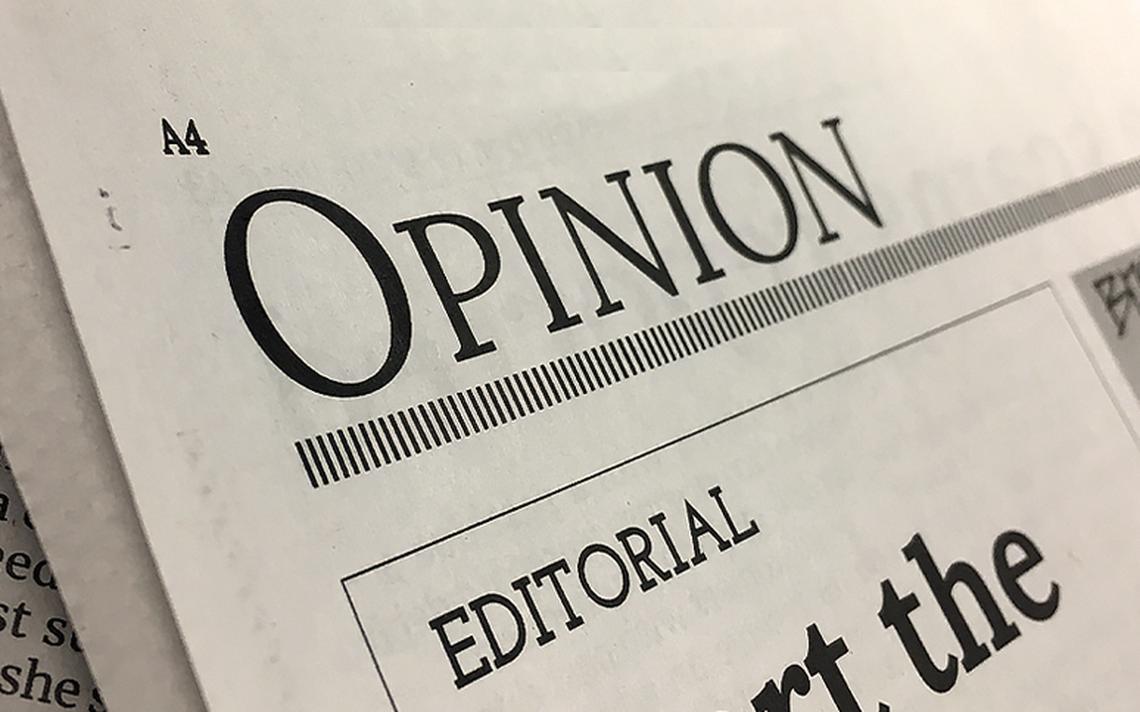
by Charles Bonniwell | Dec 17, 2021 | Editorials
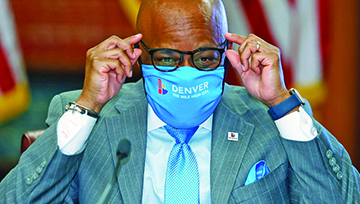 Now is the winter of Denver Mayor Michael Hancock’s discontent. A pitiable individual who has been deserted by all but the developer vultures and others that feed off his political carcass for fun and profit. Even his wife of 28 years, Mary Louise Lee, has deserted the philandering mayor and is seeking a divorce. His Honor’s biggest problem is that his final day isn’t officially until July 23, 2023.
Now is the winter of Denver Mayor Michael Hancock’s discontent. A pitiable individual who has been deserted by all but the developer vultures and others that feed off his political carcass for fun and profit. Even his wife of 28 years, Mary Louise Lee, has deserted the philandering mayor and is seeking a divorce. His Honor’s biggest problem is that his final day isn’t officially until July 23, 2023.
He has told friends that he plans to move to Florida once his term is over. Who could blame him? In places with traditional corruption like Mexico, you pay a politician off upfront and then get the actions from the politician you need. In this country it’s just the opposite. The politician does not get paid off until after he leaves office in the form of consulting contracts, board positions, and other sinecures. That form of payoff is deemed perfectly acceptable in America. Still, it’s better off to retire to Florida before getting your just rewards. That way it will be done far from the probing eyes of the Denver media.
Still, every day left in political office, Hancock must take one more humiliating bite of the proverbial sh*t sandwich. After waiting weeks for Governor Polis to reinstitute statewide COVID-19 mask mandates, and after surrounding counties did so, Hancock finally acted. Then Polis announced that the pandemic is over and there is no need for mask mandates. Polis then goes on a triumphant national media blitz on his “courageous” announcement while Hancock once again looks clueless.
Governor Polis seems to take delight in embarrassing this Denver mayor. When Major League Baseball decided to move the All-Star Game from Atlanta because the Commissioner didn’t like new Georgia voting laws, the Colorado Governor’s Office announced that: “The Governor will be burning up the phones the next few days to see if there is an opening to bring the All-Star game to Denver.” Other notable Colorado politicians like Denver Congresswoman Diana DeGette and Secretary of State Jena Griswold encouraged MLB to come to Denver. Notably absent was the mayor of Denver. Why would anyone care what the useless politically inert mayor thought?
Polis isn’t the only one who likes to humiliate Hancock. Hancock has put all his political might and a lot of the Denver taxpayer’s money behind the effort by Westside Development to get rid of the conservation easement on the Park Hill Golf Course area, and destroy the open space with a development. Denver’s first African American mayor Wellington Webb decided to take on Westside Development and behind the scenes Hancock.
The white developers who support Hancock love to play the race card. They successfully turned Hancock’s opponent in the last election, Jamie Giellis, into a caricature of a white supremist. For the November Initiative 301 and 302 which initially determined the Park Hill Golf Course area fate, they tried to make believe, as stated by Wellington Webb, that “Park Hill is inhabited by racist bullies.” But Webb was a more formidable force than Giellis and this time Hancock’s race baiting failed overwhelmingly at the polls.
Hancock’s own City Council also likes to kick him around these days. For Hancock’s first two terms the extraordinary powers of the mayor in the city charter kept the Councilmembers at bay, but not for the third term. The Council put three proposals on the November 2020 ballot, opposed by Hancock, that expanded the Council’s powers and limited those of the mayor. The first allowed the Council to hire their own professionals, including legal council, without the approval of the executive branch. The second, which was even opposed by former Mayor Webb, mandated Council approval for 14 mayoral appointments. The third one gave the Council the power to initiate appropriation of new and excess revenue. The voters gleefully approved all three and for the first time in over 100 years the strong mayor form of Denver government was not so strong.
Having lost the voters, his City Council, and his wife, Hancock appears to do little more than spend his days working out at the Denver Athletic Club getting his “beach body” ready. Perhaps the City Council should pass a provision whereby he could move to Florida and work virtually as mayor of Denver from the beach. It would cheer him up and it is doubtful anyone in Denver would notice.
— Editorial Board
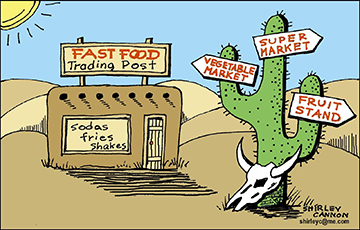
by Glendale Sports Center | Dec 17, 2021 | Glendale City News
by Jessica L. Giffin, MPH, CHES, NBC-HWC, Director of Health Partnerships, YMCA of Metro Denver
 Take a second and picture your neighborhood. Where is the closest grocery store? Is it easy to get there? Some communities have multiple grocery stores within walking distance, but many communities don’t have easy access to a full-service grocery store. They may have to travel far to find one or rely on convenience stores which are often more expensive and have fewer healthy options.
Take a second and picture your neighborhood. Where is the closest grocery store? Is it easy to get there? Some communities have multiple grocery stores within walking distance, but many communities don’t have easy access to a full-service grocery store. They may have to travel far to find one or rely on convenience stores which are often more expensive and have fewer healthy options.
Communities that don’t have access to affordable and nutritious food are known as “food deserts.” You can often find food deserts in urban spaces, rural areas, and low-income neighborhoods. People with chronic illnesses or disabilities may also have less access to grocery stores. This lack of access can lead to food insecurity and impact overall health.
It’s difficult to eat healthy if someone doesn’t have access to fresh produce or if their neighborhood is full of fast-food restaurants. Access to foods that aid healthy eating affects someone’s health throughout their life. Because healthy eating can lower your risk for certain chronic health conditions, people that can’t regularly get nutritious foods are more likely to develop obesity and diabetes.1
The YMCA of Metro Denver also runs a program for the community called Beyond Hunger to give food to people in our community who need it. Our nutritionists work with Beyond Hunger to make sure people get items that will nourish them, help them feel good, and are culturally relevant.
Health is more than what medicines you take or how often you see a health care provider. Your lifestyle, including what you eat, plays a big role in your health! That’s why it’s important that everyone has access to affordable and nutritious food.
We hope that we can learn more about how environment and lifestyle can impact health. That will take more research! If you want to help scientists find out more about health and how every community has different experiences, here’s how you can play a part.
The National Institutes of Health’s All of Us Research Program is bringing together at least a million volunteers to share information about their lifestyle, health needs, where they live, and more to get a better picture of everything that makes up health. That way health care providers, nutritionists, maybe even city planners, can make more personalized choices for every person and community.
There are a number of ways you can help advance health research with All of Us, including taking their newest survey about social determinants of health. These are your life experiences that impact your health – like how close your nearest grocery store is and what kind of food it sells!
If you’re interested in helping researchers learn more about how your lifestyle and community impact health, visit Join AllofUs.org/togetherDENVER.
1 HealthyPeople.gov, “Access to Foods that Support Healthy Eating Patterns.”

by Mark Smiley | Nov 19, 2021 | Travel
The Covid Grinch Could Steal Christmas As State Becomes Giant Covid-19 Mixing Bowl, Mountain Town Cases Soar; Flare-Ups In Denver Are Threatening Christmas Concerts
by Glen Richardson

Hospitalizations Skyrocket: Dr. Abbey Lara tends to patients in an ICU room at UCHealth as hospitalizations soar. She is pleading with people to do the “easy thing” and wear a mask and limit social gatherings.
As Cherry Creek Valley residents and families look to celebrate the holidays this month, Colorado has become a giant Covid-19 mixing bowl. Seeking a safe way to get festive, travelers and shoppers are shifting their sights away from mountain towns and downtown Denver to the Cherry Creek-Glendale neighborhoods. Nevertheless, fears are growing that the grouchy covid-19 creature is attempting to put an end to those holiday hopes.
At the beginning of November with Thanksgiving still weeks away, Colorado hospitals for the first time moved their transfer plan to the highest level during the pandemic. About one in every 51 Coloradans is now contagious with Covid-19 as the state registers the fifth-highest rate in the country with new infections compared to population.
With the pace of new coronavirus cases accelerating in Colorado, the state had asked the Federal Emergency Management Agency to send in medical teams to help in areas where hospitals are especially full. During the last two weeks of October the rate of new infections in Colorado accelerated rapidly. Only Alaska, Montana, North Dakota, and Wyoming have higher case rates compared to population.
County Countdown
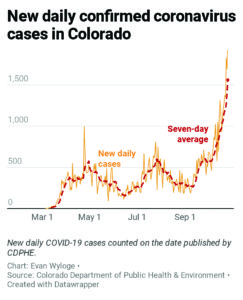
Colorado Cases Spike: Daily Covid-19 cases in Colorado started ramping up in May and were soaring by early Sept. The Colorado Public Health & Environment chart was created by Evan Wyloge.
Most of the state’s large counties have seen increasing cases, though the trend line is especially steep in Pueblo County, which concerns state officials. “It’s probably not a coincidence that this is roughly the same time that Colorado saw rapidly increasing cases last year, though it’s not clear if that reflects changes in the weather itself or in human behavior,” they suggest.
If the current trajectory continues, the state should stay slightly below the peak set in December 2020, when 1,847 people were hospitalized with confirmed Covid-19, officials estimate.
Even if transmission goes down by 5% it’s still possible the state could exceed the previous peak, they warn. As the holiday nears, some heath officials are urging Gov. Jared Polis to issue a statewide indoor mask mandate.
Denver Cases Rising
Even more worrisome, the number of hospitalized covid patients and deaths in Denver County is also on the rise. An average of 274 cases per day were reported in Denver County as November got underway, a 47% increase from the average two weeks earlier.
Since the beginning of the pandemic, one in eight residents of the City & County of Denver has been infected, a total of 93,464 reported cases.
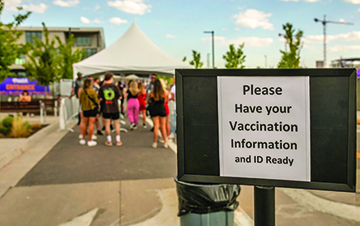
Events Altering Tune: Fans at this year’s Westword Music Showcase in September were greeted by reminder to show their Covid-19 vaccination status. Photo: CPR News
An article in the New York Times at the beginning of November suggested, “Denver County is at a very high-risk level of unvaccinated people because there was an average of 37 daily cases per 100,000 people reported in the past two weeks.” The risk in Denver County will decline from the high-risk level if the daily case rate drops to less than about 11.4 cases per 100,000 and the test positivity stays low, the paper suggested.
Christmas Events Impact

Holiday Crowd Concerns: With tens of thousands expected to attend holiday events such as the Dec. 14 Colorado Symphony Holiday Brass concert, check for new rules and regulations in advance.
In addition to the normal winter shows and concerts, dozens of Christmas events that were canceled last year are scheduled to return this month. They include several Nutcracker performances, A Charley Brown Christmas at Dazzle, and Colorado Symphony’s Holiday Brass at Boettcher Hall.
Covid flare-ups at metro-area concerts and events have been rare this year, with fewer than a half-dozen indoor events being canceled according the state’s Department of Health.
Nonetheless, promoters and artists are scrambling to impose sterner guidelines to slow down the virus and keep holiday concerts and shows on track. Upshot: If you and your family are among the tens of thousands planning to attend a holiday performance this month, check for new rules and regulations in advance.
Mountain Town Spike
People from all 50 states arriving in Colorado’s mountain towns to play this winter — plus vaccinated foreign travelers since Nov. 8 — are contributing to the high-country spike. Mountain activities where people gather without masks at restaurants-bars plus carpooling can lead to transmission. Many communities are seeing high enough Covid-19 transmission that authorities are putting restrictions on indoor dining, lodging, and gatherings. A surge of hospitalizations in Pitkin County — where Aspen is the county seat — has already resulted in a mask mandate order.
In addition to the influx of visitors, elevating factors include the winter weather, and because many essential employees live together in dense housing. Moreover, many of the visitors are coming from high pandemic states. Health officials have also found that when there is an increase in the number of mobile devices pinging in mountain towns, a rise in coronavirus cases follows seven to 10 days later.
Additionally, the pandemic is driving a migration of Americans to the state’s high-country communities. San Miguel County, for example, has seen a 20% increase in full-time residents. Plus, many people that own second-homes in the mountains are now starting to relocate to their mountain homes permanently.
Downtown Decline

Mountain Crowds: Even before the ski season began, crowds were flocking to Colorado’s mountain towns. Photos show crowds at September’s Jazz Aspen and at Little Nell’s gondola base. The hospitalization surge in Aspen has resulted in a mask mandate order for all of Pitkin County.
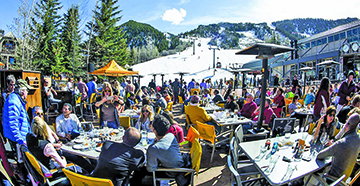 While mountain towns are booming, downtown Denver isn’t faring nearly as well. Denver’s downtown is currently seeing about 150,000 people walking around downtown compared to between 250,000 to 300,000 prior to the pandemic. According to the Downtown Denver Partnership, it’s hard to draw an apples-to-apples comparison because the data doesn’t go back to the summer of 2019. Nevertheless, it’s clear downtown foot traffic remains way down.
While mountain towns are booming, downtown Denver isn’t faring nearly as well. Denver’s downtown is currently seeing about 150,000 people walking around downtown compared to between 250,000 to 300,000 prior to the pandemic. According to the Downtown Denver Partnership, it’s hard to draw an apples-to-apples comparison because the data doesn’t go back to the summer of 2019. Nevertheless, it’s clear downtown foot traffic remains way down.
Remote work is a major reason for the drop downtown. Many companies still offer flexible work-from-home policies. Others are beginning to delay employee office return plans due to the renewed pandemic surge.
But pared down corporate travel to downtown Denver is also a major factor. Activities at the Denver Convention Center have picked up somewhat, yet remain far below where it was prior to the pandemic. Rich Carollo, director of sales and marketing at the Convention Center, reported few events in November.


















